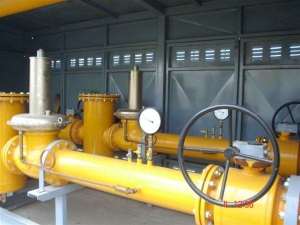The aftermath of the political dispute in July made its negative effects fully felt throughout August. Due to the political indecision regarding the quarantine law that tormented the Romanian society in the middle of summer, we faced, last month, an explosion of the number of cases of Covid-19, with a daily average of around 1200 new infections, with a peak of 1504 people on August 27.
The growing spread of the pandemic in Romania was a good opportunity for the political left and especially for the PSD representatives to permanently attack the way the Orban Cabinet governs and even to introduce in Parliament, in extraordinary session - for the first time in the last 30 years - a motion of no-confidence to be debated on the last day of August.
Meanwhile, the Executive continued to hesitate on measures to open the new school year, resume activities inside restaurants, cafes and other food preparation and serving units, and resume activities with the public inside theaters, cinemas, cultural institutions and performance halls.
While the Government was struggling with the measures to diminish the effects of the pandemic and with the prolongation of the state of alert, on August 22nd, the PSD elected its new management team, in which the newest co-opted members were those "exiled" by Liviu Dragnea: Vasile Dâncu - the president of the National Council and former prime minister Sorin Grindeanu. The only one who for the moment, seems to have lost ground following the internal struggle is former Finance Minister, Senator Eugen Teodorovici, the one who wanted to block at all costs the ascent to full power of Marcel Ciolacu within the PSD.
But let's take the events on the political scene one by one, as they took place last month.
On August 5, President Klaus Iohannis announced that the school year will begin on September 14 and that the educational activity will take place on the basis of three scenarios: green (all students at school), yellow (a combination of attendance systems, by rotation, students at school with online education) and red (online education). On the same occasion, the head of state reiterated that the local elections would take place on September 27 and that the Government would have to prepare school buildings for both events.
Just two days later, on August 7, the People's Advocate again made an unpleasant surprise to the members of the Government and challenged with the Constitutional Court of Romania article 8 paragraphs 3, 4,5, 6, 7, 8 and 9 of the law of quarantine and isolation, approved by Parliament, after lengthy political debates, in mid-July.
On the same day, during the Government meeting, Prime Minister Ludovic Orban said regarding the Ombudsman's approach: "To me, this already beggars belief. After three weeks where we had no possibility to take measures to treat under medical supervision or isolate the patients diagnosed as positive, and also did not get the chance to isolate the contacts of each person that tested positive, (...), the Ombudsman relapses and challenges a law that was passed by the Parliament following the decision of the Constitutional Court, also following a referral of the Ombudsman. Things are already going in a direction that, personally, I do not understand. And this persistence in allowing the Government and the health authorities to fight the epidemic, to protect people's lives and health, already looks to me like an attack on the fundamental interests of Romania".
Also on August 7, the European Commission approved the increase to 20 billion lei of the total allocation from the state budget for the SME Invest program, launched in May by Finance Minister, Florin Cîţu.
Throughout all these conflicts, a new reason for political dispute has emerged. The Court of Auditors published, on August 12, the report on public expenditures made during the state of emergency, a report requested by the Parliament, by decision no. 4/16 April 2020 approving the extension of the state of emergency. Following the audits performed at the level of the Government, ministries, agencies, offices and state companies and at the level of local public administration, the inspectors of the Court of Auditors uncovered losses of 38.3 million lei and deviations of 659 million lei in the expenses made during the state of emergency, especially in regard to public procurement. The contracts with the biggest problems regarding incurred expenses and goods that were not delivered are the ones managed by the National Office for Centralized Procurement and state-owned company Unifarm SA.
• Raised pensions and child allowances upon the budget rectification
On August 14, the Government approved this year's second budget rectification (the first took place in April, during the state of emergency), a rectification which establishes that the value of the pension point increases by 14% ( from 1265 lei to 1442 lei, the increase of the minimum pension from 704 lei to 800 lei) starting September 1st, and a 20% increase of child allowances, on the same date. The additional budgetary effort for the two measures amounts to 13 billion lei.
According to Finance Minister Florin Cîţu, the rectification accounts for a contraction of the economy in 2020 of 3.8%, a budget deficit of 90.9 billion lei, which represents 8.6% of GDP. The rectification records a decrease of 20 billion lei of budget revenues and an increase în expenditures of 18.1 billion lei (30 billion lei for the entire year 2020).
In that same meeting, the Government decided to extend the state of alert by another 30 days.
Dissatisfied with the budget rectification which establishes only a 14% increase in the value of the pension point compared to the law approved by the Parliament two years ago, which stipulated a 40% increase on September 1, 2020, on August 17, 205 PSD and ALDE MPs filed a motion of no-confidence against the PNL Government, which they accuse of widespread grifting and bribe-taking.
The motion was read in the joint meeting of the Parliament after only two days, on August 19, when the Chamber of Deputies, as a decision-making body, rejected the emergency ordinance regarding the staggered doubling of allowances. The government immediately challenged the rejection law with the Constitutional Court.
Also on August 19, in its weekly meeting, the Government approved, based on the agreement of the European Commission, the emergency aid for airlines Tarom and Blue Air. The aid is granted on the grounds that the two airlines have suffered significant losses due to the effects of the Covid-19 pandemic and in the absence of financial support may go bankrupt. According to the law that was passed, the state will guarantee at 100% loans of over 600 million lei (312,744,200 lei for Tarom and 300,775,000 lei for Blue Air), as well as the related interest payments and commissions for a period of 6 years.
• After seven months, the budget deficit has grown to 4.7% of the GDP
The budget deficit deepened to 4.7% of GDP, respectively 49.68 billion lei, in the first seven months of the current year, from 1.75% (18.14 billion lei) in the same period of 2019, the Finance Ministry announced, in the budget execution published on August 26th. According to the document, 27.01 billion lei (2.55% of GDP) were left in the economic environment through tax breaks, investments and exceptional expenditures intended to combat the effects of the COVID-19 epidemic, according to the relevant ministry.
After the publication of the budget execution, Gelu Diaconu, former president of the National Agency for Fiscal Administration (ANAF), commented: "The collapse of the budget revenues and the increase in expenditures and government loans will continue, until the end of the year, when the deficit will be somewhere in the two figures... around 10-11% ".
• About 2.8 billion lei - the profit of the banking system in the first semester
At the end of last month, the National Bank of Romania (BNR) announced that the banking system registered a profit of about 2.8 billion lei, in the first half of 2020, slightly higher than last year's similar period ( 2.77 billion lei).
The 33 credit institutions in our country have total net assets of 518.5 billion lei. The solvency ratio of the Romanian banking system is 22.76%, in the context of a minimum level of 8%, as required by the Central Bank. Mid-year, the solvency of our banks reached the level of 19.6%. The loan to deposits ratio decreased YOY, to 69.7% in June 2020, down from 74.69. The non-performing loans rate stands at 4.38%, down YOY from 4.74%.
• The "Noua casă" - New Home program - in effect starting with August 20
The program "One family, one home" (formerly the program "Prima casă - First home") was changed into "New Home", and was published in the Official Gazette on August 6. It came into effect on August 20, following the publication of the implementation rules.
About 1.6 billion lei will be available for the program until the end of the year.
The new program will help two categories of people: those who up until now could were eligible for the Prima Casă program (loans of up to 70,000 euros, with state guarantees of 50% and 5% downpayment for new or old homes), and those who will buy homes at prices ranging between 70,000 and 140,000 euros, with state guarantees of 60% and a downpayment of 15%.
• Ciolacu becomes the head of the PSD
Confronted with the PSD's approach, which introduced a motion of no-confidence in an extraordinary session, the Government challenged it on August 21st with the Romanian Constitutional Court. The move by the Orban Cabinet came as the Social Democrats were preparing for the extraordinary PSD Congress the next day, in which they were to elect their new leadership. To this end, on August 21st, the PSD Executive Committee approved the proposed statutory amendments imposed by the Ciolacu team and recorded the two candidates for the position of party president: Marcel Ciolacu and Eugen Teodorovici.
Just one day earlier, Teodorovici had challenged in court the change of the party's bylaws and the interim leadership, alleging they were illegal. On August 21, his request to postpone the extraordinary Congress of PSD was rejected by the Bucharest Court.
The PSD congress was held on Saturday, August 22, in unusual circumstances, due to the Covid-19 pandemic. The 1509 delegates were divided into 38 centers throughout the country, and the candidates for leadership positions in the party were in the 39th center in the Palace of Parliament. The whole event took place online in compliance with health protection and physical distancing rules imposed by the government decision which imposed the state of alert, which was extended on August 14.
The delegates watched on the screens in the Parliament Palace the candidates' speeches, and then approved the amendment of the PSD Bylaws and cast the vote on the new party leadership. With 1310 votes compared to only 91 received by Eugen Teodorovici, the team and platform proposed by Marcel Ciolacu won the internal elections in PSD, and the president of the Chamber of Deputies became the head of the largest left-wing party in Romania. His team included as first vice-presidents former prime-minister Sorin Grindeanu and Gabriela Firea - the current general mayor of Bucharest. Vasile Dâncu was elected president of the National Council, which will deal with the reform of the party. Paul Stănescu is the general secretary, and the party's limited leadership has 12 vice-presidents: four vice-presidents in the fields of social, infrastructure, administration and economy, and eight regional vice-presidents.
From that moment, Marcel Ciolacu bet everything on the motion of no-confidence card and declared for 9 days that PSD had the number of votes needed to remove the liberals from Victoria Palace.
• Starting the new school year with debts
A new meeting of the Executive took place on August 24, which approved the SME Factor program for guaranteeing commercial credit and the associated State Aid Scheme. The program establishes state guarantees in the amount of 50% of the value of this type of financing with state subsidized guarantee costs, and the maximum value of the financing facility is 5 million lei per beneficiary.
In fact, it is an incentive for the financial-banking market, which supports small and medium-sized enterprises and companies that during this period, due to economic difficulties, may be harmed by the delays in paying the invoices they have issued.
In other words, a company that wants to receive the money for the services or goods provided faster, based on the invoice, asks a bank to pay that invoice, has immediate access to cash, and the bank will receive the amount of that invoice from the customer upon that invoice coming due. The value of the guarantee, within that scheme, is one billion lei for a period of 12 months, during which period, through this instrument, companies will get easier access to liquidity, as a result of the settlement of invoices through the factoring system.
The government meeting also approved the emergency ordinance allocating 175 million euros, of which 100 million euros are for the purchase of 250,000 school tablets, 50 million euros for sanitary materials and 25 million euros for sanitary containers. The respective amounts represent the funds needed for the preparation of the school year under pandemic conditions, but it will be settled by the future government, because, according to the normative act, the acquisitions will be made at the expense of local public administrations, and the settlement will be made only on December 15, 2020 - January 31, 2021, on a "first come, first served" basis.
However, the Government has ordered the purchase of 250,000 tablets, but in the beginning of September only 80,000 of them were contracted and it is hard to believe that by September 14 students who need them for online education will take possession of these devices.
In the meeting, the Government also approved the launch of the state aid scheme for compensating farmers affected by the effects of the drought. The government will provide compensation of 850 million lei to 34,400 farmers and a total affected area of approximately 1.6 million hectares.
Also on August 24, the Ministry of the Economy, Energy and Business Sector sent to the European Commission, through the Competition Council, the plan for the restructuring of the Oltenia Energy Complex.
• End of the month, marked by the reopening of restaurants and the failure of the motion of no-confidence
August 27 marks the official start of the election campaign for the local elections that will take place on September 27. As usual, there has been an inflation of candidates and parties in the last 30 years. For example, 18 people have legally registered their candidacies, but, according to the polls, the real contenders will be Gabriela Firea (PSD) and Nicuşor Dan (independently supported by PNL and USRPLUS), but the outcome may be disturbed by the percentages that Traian Băsescu (PMP), Călin Popescu Tăriceanu (ALDE) and General Ioan Sîrbu (Alianţa Pro Bucureşti 2020) get.
On August 27, the Government passed the amendment to the deceision concerning the state of alert and has set the rules which the candidates and their teams will have to abide by in the local elections, as well as the manner in which electoral meetings and the distribution of promotional materials will take place, in order to ensure medical safety, following the Covid-19 pandemic.
On the evening of the same day, the National Committee for Emergency Situations, after prior discussions for two days with representatives of the HoReCa industry, approved the decision necessary to resume work on September 1 in restaurants, cafes and other public catering units, such as and the opening of theaters, cinemas and theaters to the public. According to the act, bars and clubs remain closed.
The next day, August 28, the Ministry of Economy, Energy and Business Environment posted on its website, for public consultation, the draft joint order with the Ministry of Health, for the reopening of restaurants.
On Monday, August 31, before appearing in Parliament for debate and vote on the motion of censure, the Orban Cabinet amended, based on the CNSU decision of August 27, the government decision on the state of alert and thus approved the reopening of the restaurants, cafes and other public catering establishments, as well as the opening to the public of theaters, cinemas, performance halls. According to the Government's administrative act, bars and clubs remain closed. The joint order of the Ministry of Economy and the Ministry of Health establishing the strict norms for the resumption of HoReCa activity inside restaurants and cafes is published in the Official Gazette on September 1st.
In the same meeting, the Government approved the directions for the preparation of the National Plan for Resilience and Economic Recovery, which will be finalized at the end of September and will be discussed in October with European Commission officials. It is about the 30.4 billion euros that our country must absorb in the period 2021-2023, for the economic recovery following the crisis generated by the Covid-19 pandemic. The final plan will be approved in April 2021 by the Brussels Commission.
After the government meeting, the members of the Orban Cabinet went to the Parliament to debate and vote on the vote of no-confidence submitted by the PSD. For four hours we have witnessed a parody, with the Social Democrats not being able to provide the quorum for the debate and voting, on the last day of the extraordinary session, of the respective motion. Despite the nominal roll call ordered by the leaders of the two Chambers of Parliament, 226 senators and deputies were counted in the plenary hall instead of the minimum necessary for the sitting - 233. In these conditions, Marcel Ciolacu closed the meeting due to lack of quorum and concluded that the motion of no-confidence failed. Five PSD parliamentarians were absent from the meeting, one from the Republican Party and one from ALDE. With these seven parliamentarians, the political left could have had the quorum necessary for the respective session. Subsequently, four of the five PSD parliamentarians were excluded from the party by the new the National Political Council, the new leadership elected in the August 22 Extraordinary Congress.
It should also be noted that, before the vote of no-confidence, President Klaus Iohannis sent a message to the MPs urging them not to become complicit in the "irresponsible act of PSD" and not to vote on the on the motion of no-confidence.


















































